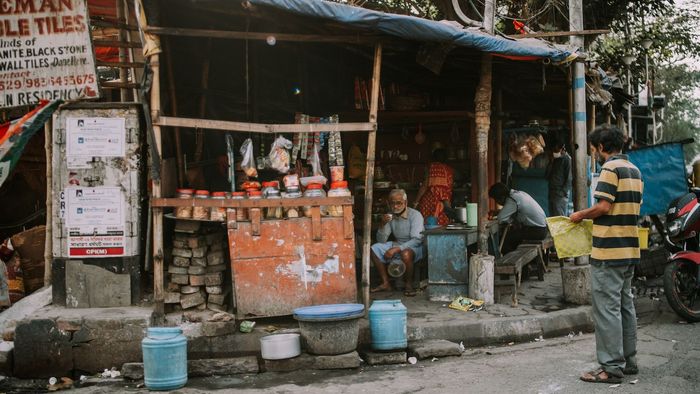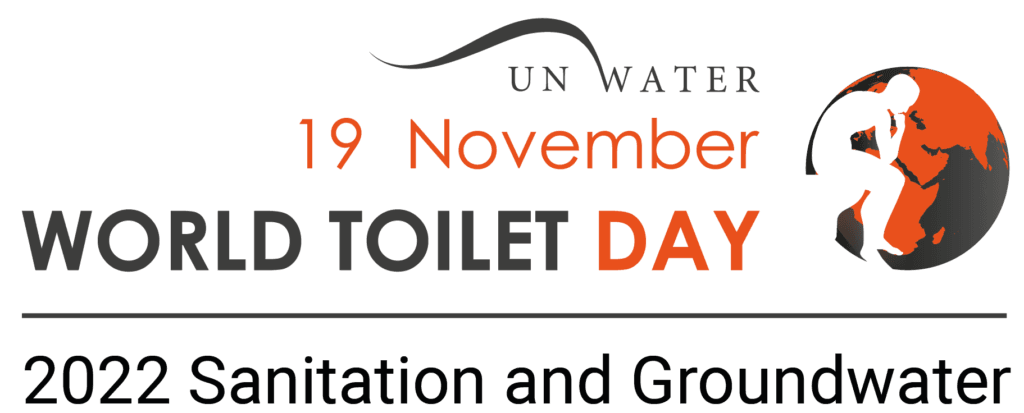SanitAction: a sustainable and inclusive sanitation pathway

Published on Nov 9, 2022
Lack of innovative sanitation technologies is one of the reasons why the world is making poor progress towards the SDGs in the provision of safe sanitation for all. The quest for cheap rather than cost-effective solutions results in the poor or many in the developing world receiving a hole in the ground while the rest get the gold standard of waterborne sanitation. This not only fuels inequity and hampers development, but also quashes the aspirations of improved and acceptable sanitation, as well access to a sanitation market.
Someone once commented that “it is a sin that with today’s technologies we continue to flush our human wastes in times of growing water constraints”. The water sector’s infrastructure-driven culture has blinded us from adopting innovation and disruptive solutions. That is our crisis, continuing to perpetuate this ‘sin’ – where our objective at the city level has become to keep the ‘shit’ flowing. The lack of technology shifts and solutions is one of the key factors, which also contributes to poor and undignified sanitation in informal and rural settlements, rural schools, clinics, hospitals and households. This lock-in stems from Western-style standards and regulations that perpetuate inequality and division between the haves and the have nots.
Unfortunately, this has been the trajectory for the last half of a decade. However, there is hope in the horizon as we grow and nurture a new sanitation paradigm – that of a non-sewered sanitation future. This World Toilet Day, I ask if you believe that this is possible. I do and am positive that this reality is not too far away.
On the back of climate challenges and associated water security issues, non-sewered sanitation offers a sustainable pathway for the future. The International Water Association has recognised this potential and launched an Inclusive Urban Sanitation initiative. The initiative aims to reshape the global agenda on urban sanitation. It is being promoted through a dedicated campaign – SanitAction – to gather the support and collaborative action needed to secure progress. Far too many people in towns and cities around the world still lack access to safely managed sanitation. There is a need for an accelerated and inclusive approach to expanding safe service coverage. The initiative will draw up a framework with wide practical applicability to define global goals and fundamentals of a public service approach to outcomes that can advance inclusive urban sanitation, especially in low- and middle-income countries. Join the conversation online and have your say using #SanitAction.
Supporting this initiative is a dedicated IWA Specialist Group focusing on Non-Sewered Sanitation (NSS) complemented by four other Specialist Groups which have sanitation also as their focus, namely: Efficient Urban Water Management, Resources-Oriented Sanitation, Sanitation and Water Management in Developing Countries, and Health Related Water Microbiology.
Recognising that significant strides have been made in conventional waterborne sanitation and its societal impacts, these all come at a significant cost and energy requirement. Climate changes and stresses on water availability put on added pressure on water resources available for flushing and transporting human waste. Today’s urban water crisis is actually a sanitation/sewerage challenge.
Thus, a new sanitation paradigm which challenges current thinking and reflects on technology disruption is urgently needed. That is, technology which can safely treat human excreta while matching user preferences without the need for sewers, with minimal reliance on water and energy, and which has potential for beneficiation of waste streams.
Through innovation and smart supply chains, universal access can be achieved sustainably and linked to water security and business opportunities. The opportunity opens up for leapfrogging these solutions in growing urban cities of the developing world, as well as in water starved areas of the developed world, reducing water consumption, carbon footprint and harmful pollutants.
The Non-Sewered Sanitation SG was formed to stimulate the urgent need to develop the next generation of off-grid, innovative and novel technological options for sanitation that take into account available water and energy resources, user preferences, variable user population, and are able to contribute to revenue generation through beneficiation of waste products or reduce operational and maintenance costs. Such an intervention can contribute to up to 50% of savings in water supplies, 60% of savings on capital, elimination of sewers and resource-intensive traditional wastewater treatment systems, reduction or elimination of pollutants and more. The further benefit of NSS is the potential for a sustainable circular economy of sanitation, which offers opportunities for jobs creation and social uplift, as well as industrialisation, localisation and a new services industry.
The global community is yet to harness the full potential of NSS, while progress is still being made. The Bill & Melinda Gates Foundation’s persistent investments in the ‘Reinvent the Toilet’ initiative has stimulated new science and innovations on the next generation of sanitation technologies. Mimicking the vision and the development pathway of the computer revolution, we are seeing the emergence of the first generation of products in the near horizon. With the interest of global big industry players such as Samsung and others, the reality of the NSS revolution is near.
On this World Toilet Day, I wish to congratulate all scientists, innovators, visionaries, investors, institutions, students and many others who have relentlessly worked towards making this a reality. I look forward to eliminating inequalities in sanitation, because where you are born should not determine the technology you receive.
About the Non-Sewered Sanitation (NSS) IWA Specialist Group
This newly established IWA Specialist Group aims to bring together experts, scientists and practitioners with experience in FSM and non-sewered sanitation – to generate, collate and disseminate knowledge in the area worldwide. This knowledge aims to guide sanitation service provision in a sustainable way thus improving the quality of life for millions of people using on-site sanitation systems and therefore contributes towards achieving SDG target 6.2. In this effort, we will work closely with other Specialist Groups, including Resource Orientated Sanitation, Sludge Management and Sanitation and Water Management in Developing Countries, in areas where there will be interest in jointly furthering knowledge and understanding of FSM.
IWA Specialist Groups cover a wide range of subjects and are one of the main mechanisms for like- minded IWA members to network and share knowledge. They form important engines for scientific and technical content development that drives innovations in the water sector. Spread across IWA’s membership in more than 140 countries, they are an effective means of international networking, sharing information and skills, and making professional and business contacts.
Given the evolution of the sector towards higher complexity and inter-connectivity, Specialist Groups have become more inter-dependent to facilitate collaboration. Specialist Groups have their own programme of conferences and other meetings, and regular newsletters. Specialist Groups are supported by on-line tools, facilitating interaction amongst individual members and creating opportunities to generate ideas and pursue partnerships.

